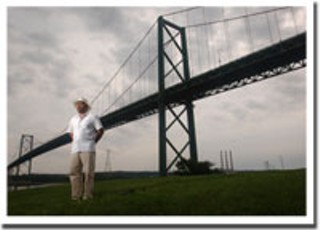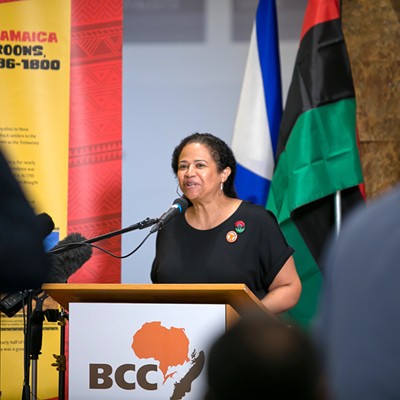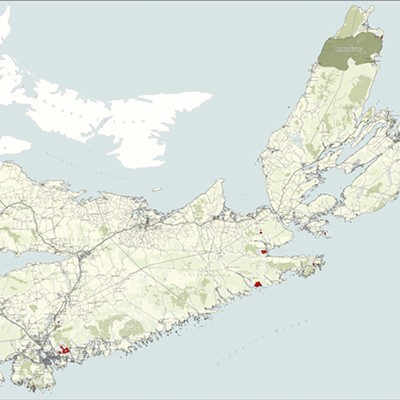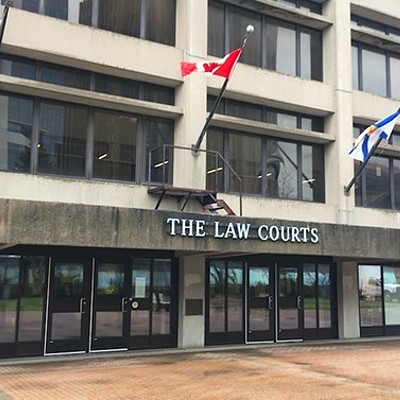Irvine Carvery has reason to be cautious.
And he is. But he could be cynical too. And he isn’t.
Since 1976, when the birth of his first son taught him the “true meaning of Africville,” Carvery has been on a seemingly doomed quest. He wants the City of Halifax to acknowledge it screwed up in the 1960s when it wiped from the map the poor black community where he was born and raised, and to do something now to rectify the damage it did to the 400 people who called it home at the time.
To many outsiders, Africville was a slum full of shacks without city water or sewers, surrounded by a dump, an infectious diseases hospital, an abattoir, sewage disposal pits. Many ’60s do-gooders believed the answer was to raze the community and move its residents to modern public housing complexes.
But it was never that simple. There were no sewer and water services only because the city refused to provide them, despite residents’ petitions and the reality it would have been cheaper to install them than relocate the people. The dump etc., only ended up in Africville because richer neighbourhoods didn’t want them.
Perhaps most important—whatever outsiders thought—the residents considered Africville home and wanted to stay.
This weekend, during the 24th annual Africville Reunion on the shores of Bedford Basin near the container terminal in Seaview Park—where the community once stood—members of the Africville Genealogy Society will finally learn how much it will cost to rebuild Africville’s former church and start and run an interpretive centre there.
Carvery will then go back to the bargaining table with federal, provincial and city officials, and try to make his dreams real. He’s cautiously optimistic.
It’s been a long time, I suggest.
“Sure has,” Carvery laughs. But he remains an “eternal optimist.”
In 1987, Carvery first appeared before council to demand it allow the former residents to return and rebuild Africville. That request “went to the basement or wherever those things go.”
Undaunted, Carvery kept pushing and, in 1991, then-deputy premier Tom McInnis announced the province would contribute $200,000 for rebuilding Seaview Baptist Church, Africville’s “vocal and spiritual heart.” It’s probably fair to say McInnis’ announcement was as much about the then-Tory government’s desperation to cling to power amid growing scandal as it was a genuine act of contrition.
But though the promise continued to be trot-ted out from time to time, nothing came of it.
To make matters worse, after the Genealogy Society, which Carvery heads, got so frustrated it filed a lawsuit seeking compensation from the city for their losses, city council retaliated by withdrawing its commitment to provide land for the church and refused to allow its negotiators to discuss the possibility of individual compensation.
In 2002, then-heritage minister Sheila Copps declared Africville a historic site, but even that didn’t help re-start negotiations.
What did finally help, Carvery says, was a damning 2004 United Nations report that called on Ottawa to pay reparations to Chinese citizens who’d been forced to pay a head tax and to former Africville residents.
“That report was the watershed,” he says.
With Ottawa finally taking an interest, everyone came back to the table and there’s been “a very, very positive feeling ever since,” not just among those doing the talking but their respective departments too.
So Irvine Carvery is hopeful this may finally be it, but there have been so many disappointments he says he won’t celebrate “until the whole thing is done.”
For Carvery, the “whole thing” includes more than rebuilding the church. Although the Genealogy Society has dropped its call for individual compensation, it wants its legal bills taken care of and, most important, it wants the city to turn over the adjacent Seaview Lookoff property for development as a senior citizen’s home and affordable housing, and use the proceeds to create an endowment to not only fund the interpretive centre but also, hopefully, provide an educational fund for the descendants of Africville.
“Now that would be a legacy,” he says. Optimistically.
















